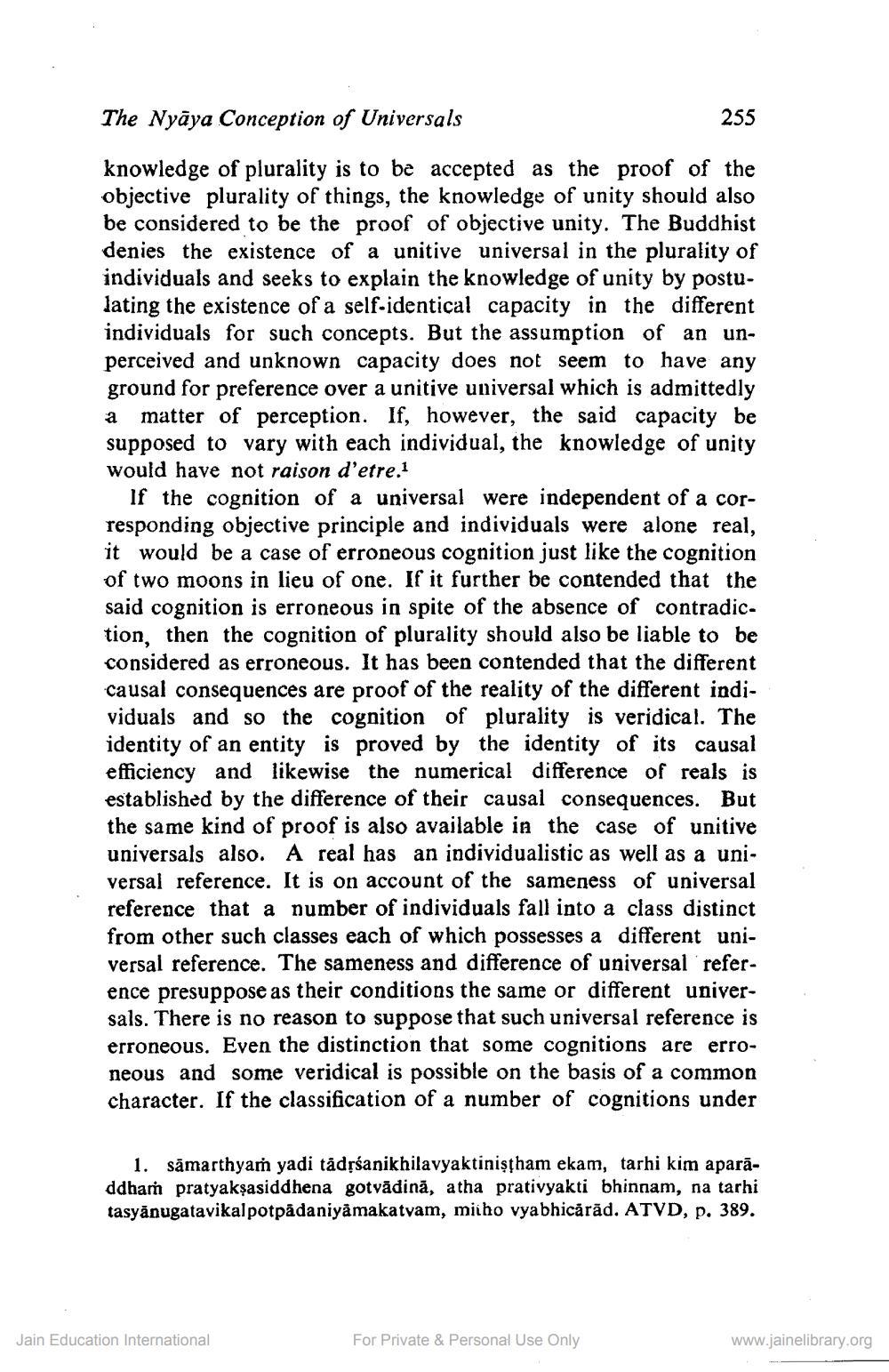________________
The Nyāya Conception of Universals
255
knowledge of plurality is to be accepted as the proof of the objective plurality of things, the knowledge of unity should also be considered to be the proof of objective unity. The Buddhist denies the existence of a unitive universal in the plurality of individuals and seeks to explain the knowledge of unity by postulating the existence of a self-identical capacity in the different individuals for such concepts. But the assumption of an unperceived and unknown capacity does not seem to have any ground for preference over a unitive universal which is admittedly a matter of perception. If, however, the said capacity be supposed to vary with each individual, the knowledge of unity would have not raison d'etre.1
If the cognition of a universal were independent of a corresponding objective principle and individuals were alone real, it would be a case of erroneous cognition just like the cognition of two moons in lieu of one. If it further be contended that the said cognition is erroneous in spite of the absence of contradiction, then the cognition of plurality should also be liable to be considered as erroneous. It has been contended that the different causal consequences are proof of the reality of the different individuals and so the cognition of plurality is veridical. The identity of an entity is proved by the identity of its causal efficiency and likewise the numerical difference of reals is established by the difference of their causal consequences. But the same kind of proof is also available in the case of unitive universals also. A real has an individualistic as well as a universal reference. It is on account of the sameness of universal reference that a number of individuals fall into a class distinct from other such classes each of which possesses a different universal reference. The sameness and difference of universal reference presuppose as their conditions the same or different universals. There is no reason to suppose that such universal reference is erroneous. Even the distinction that some cognitions are erroneous and some veridical is possible on the basis of a common character. If the classification of a number of cognitions under
1. samarthyam yadi tādịśanikhilavyaktiniştham ekam, tarhi kim aparāddhar pratyakşasiddhena gotvādinā, atha prativyakti bhinnam, na tarhi tasyānugatavikalpotpadaniyamakatvam, miiho vyabhicărād. ATVD, p. 389.
Jain Education International
For Private & Personal Use Only
www.jainelibrary.org




